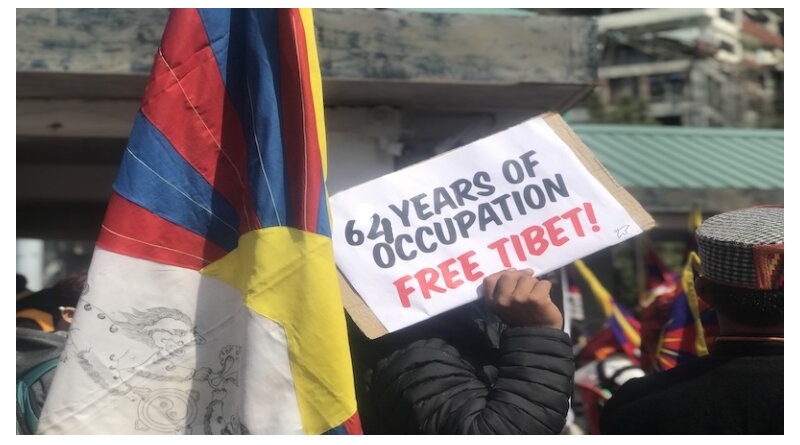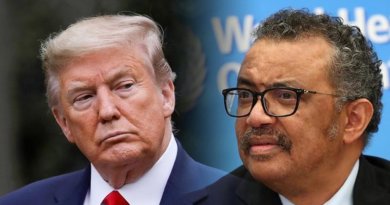Tibetan Rights Groups Gear Up For Greater Scrutiny Ahead of China’s 4th UPR at UN
By Tsering Choephel

DHARAMSALA 18 Jan: Tibetan rights groups anticipate that UN member states will engage in greater scrutiny of China’s human rights violations and adopt strong language on Tibet during the 45th session of the United Nations Human Rights Council’s Universal Periodic Review (UPR) Working Group, scheduled to be held in Geneva from 22 January to 2 February 2024.
The UPR requires each UN member state to undergo a peer review of its human rights records every four and a half years. The upcoming UPR is China’s fourth, with the previous three held in 2009, 2013, and 2018. Fourteen states, including Saudi Arabia, Nigeria, and the Central African Republic, are set to undergo peer review at the UPR, with China scheduled to present its human rights case and face review and recommendations on 23 January.
The Tibet Coalition Advocacy, which includes the International Tibet Network, Tibet Justice Center, Students for a Free Tibet (SFT), Tibetan Youth Association Europe, and Tibet Initiative Deutschland, has, in the past year, briefed diplomatic staff from over 30 countries about the human rights situation in Tibet, as stated in a video posted on SFT’s Instagram page.
In July 2023, the International Campaign for Tibet and the International Federation for Human Rights submitted a joint report detailing systematic and widespread patterns of Human rights violations in Tibet under Chinese rule.
The Tibetan Centre for Human Rights and Democracy (TCHRD) also submitted a UN Universal Periodic Review report in August 2023, outlining concerns and recommendations on specific human rights issues inside Tibet. TCHRD said it would conduct a series of advocacy and lobbying activities, targeting embassies in New Delhi and permanent missions in Geneva for the upcoming UPR.
Dedicated and targeted awareness campaigns and lobbying by dozens of Tibetan rights groups over many months resulted in high-level support from international bodies. On 14 December 2023, the European Parliament adopted a resolution strongly condemning “repressive assimilation policies throughout China, especially the boarding school system in Tibet,” and called on China to immediately abolish this system. In the same month, a bipartisan group of 24 members of the US House of Representatives wrote to Secretary of State Antony Blinken, urging the Biden administration to ensure that severe human rights violations committed by the People’s Republic of China against the Tibetan people are addressed during the PRC’s upcoming Universal Periodic Review.
The recommendations put forward by Tibetan rights groups cover a wide range of issues, including religious, cultural, and linguistic rights that the Chinese Communist Party continues to violate against international law. They called for the abolition of China’s ‘colonial-style’ state-run boarding schools, the reintroduction of the Tibetan language as a medium of education in schools, and the allowance of privately-run Tibetan language schools, particularly in Tibetan Buddhist monasteries.
The recommendations also urged Chinese authorities to cease arbitrary detention, torture, and ill-treatment of Tibetans. This includes an urgent call for the release of all Tibetans who have documented the consequences of land use policies, mining, damming, or poaching and advocated for redress. Moreover, it asks China to allow immediate and unfettered access to Tibet for journalists and independent observers, including the UN High Commissioner for Human Rights and UN special procedures’ mandate holders.
It also called for the resumption of dialogue with representatives of the Dalai Lama without preconditions, to implement a mutually beneficial and lasting resolution to the Sino-Tibetan conflict that allows the Tibetan people to protect their culture and preserve their identity.
A joint report by Renee Xia, the director of the Network of Chinese Human Rights Defenders (CHRD) and William Nee, the research and advocacy coordinator of the CHRD published in The Diplomat, December 2023 – highlighted how China manipulates such UN mechanisms like UPR to their advantages. It underscores Beijing’s lack of good faith in the process (of UPR) as a fundamental problem. It warns other member states of the UN to beware of China’s tactics and says “This moment calls for great courage in calling out China for its human rights abuses,” and added, “Beijing may well reject these and other tough recommendations, but building a body of evidence showing its refusal to cooperate with UN human rights mechanism is useful.”
Meanwhile, in its 2023 report, Freedom House listed China among the countries with the worst aggregate scores for political rights and civil liberties. Furthermore, China retained the title of the world’s biggest prison for journalists for the fourth consecutive year, according to Reporters Without Borders (RSF). Ironically, in October 2023, China was re-elected for the sixth term as a member of the UN Human Rights Council (UNHRC)





